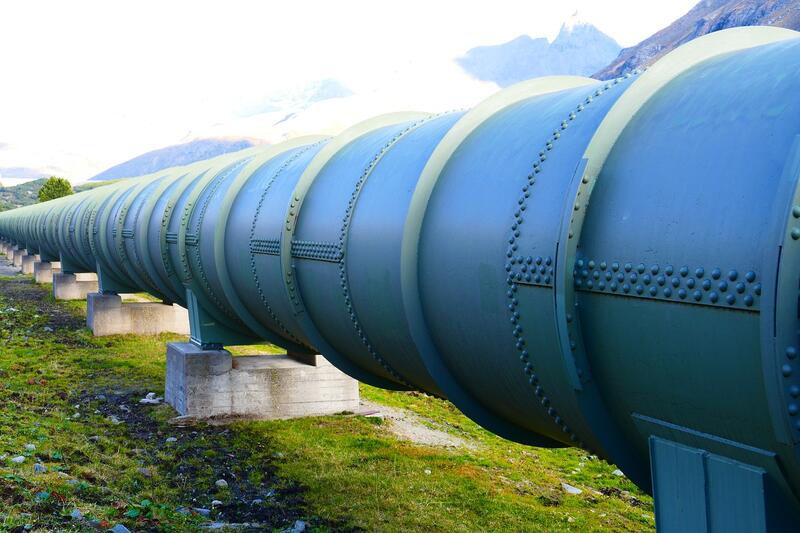Decarbonizing Transport via pipeline: Unlocking the Path to Sustainability
This article explores the potential of decarbonizing transportation through pipelines, highlighting the benefits and challenges of this approach towards achieving sustainability.

The transport sector is one of the largest contributors to global carbon emissions, accounting for approximately 23% of total carbon emissions. Within the transport sector, the transport via pipeline sector is a significant contributor to carbon emissions. Decarbonisation of the transport via pipeline sector is essential to mitigate the impact of climate change. This article will discuss what decarbonisation in the transport via pipeline sector is, why it is important, the main sources of carbon emissions in this sector, how carbon emissions can be reduced, the challenges facing decarbonisation, and the implications of decarbonisation for the transport via pipeline sector.
What is decarbonisation in the transport via pipeline sector and why is it important?
Decarbonisation in the transport via pipeline sector refers to reducing or eliminating the carbon emissions associated with the transportation of goods and energy products through pipelines. The transport via pipeline sector is responsible for transporting crude oil, natural gas, and other energy products from production sites to refineries, processing plants, and end-users. Decarbonisation is essential to mitigate the impact of climate change, reduce greenhouse gas emissions, and meet the global carbon reduction targets set by the Paris Agreement.
The main sources of carbon emissions in the transport via pipeline sector
The main sources of carbon emissions in the transport via pipeline sector are the combustion of fossil fuels used to power the pumping stations and compressors that transport the energy products through pipelines. The energy products transported through pipelines are primarily crude oil, natural gas, and refined petroleum products. The combustion of fossil fuels used to power the pumping stations and compressors releases carbon dioxide (CO2) and other greenhouse gases into the atmosphere.
How can we reduce carbon emissions in the transport via pipeline sector?
There are several ways to reduce carbon emissions in the transport via pipeline sector. These include:
- Renewable Energy: The use of renewable energy sources such as wind, solar, and hydroelectric power to power the pumping stations and compressors can significantly reduce carbon emissions.
- Energy Efficiency: Improving the energy efficiency of the pumping stations and compressors can reduce the amount of fossil fuels needed to transport the energy products through pipelines, thereby reducing carbon emissions.
- Carbon Capture and Storage: Carbon capture and storage (CCS) technology can capture the carbon emissions from the pumping stations and compressors and store them underground or in other locations, thereby reducing the amount of carbon emissions released into the atmosphere.
- Fuel Switching: Switching from fossil fuels to cleaner fuels such as natural gas or hydrogen can reduce carbon emissions in the transport via pipeline sector.
- Pipeline Maintenance: Regular maintenance of pipelines can reduce the amount of energy needed to transport the energy products, thereby reducing carbon emissions.
What are the challenges facing decarbonisation in the transport via pipeline sector?
There are several challenges facing decarbonisation in the transport via pipeline sector. These include:
- Cost: The cost of implementing decarbonisation technologies such as renewable energy and CCS can be high, and this can be a significant barrier to their adoption.
- Infrastructure: The existing infrastructure in the transport via pipeline sector may not be suitable for decarbonisation technologies, and significant investment may be required to upgrade the infrastructure.
- Regulatory Framework: The regulatory framework may not be conducive to the adoption of decarbonisation technologies, and changes may be required to facilitate their adoption.
- Public Perception: There may be resistance from the public to the adoption of decarbonisation technologies, and this can be a significant barrier to their adoption.
- Technological Readiness: Some decarbonisation technologies may not be fully developed or commercially available, and this can be a significant barrier to their adoption.
What are the implications of decarbonisation for the transport via pipeline sector?
Decarbonisation of the transport via pipeline sector has several implications, including:
- Reduced Carbon Emissions: Decarbonisation will result in a significant reduction in carbon emissions from the transport via pipeline sector, thereby contributing to global efforts to mitigate climate change.
- Increased Investment: Decarbonisation will require significant investment in new technologies and infrastructure, and this will create new investment opportunities in the transport via pipeline sector.
- New Business Models: Decarbonisation will require new business models and new ways of operating in the transport via pipeline sector, and this will create new opportunities for innovation and entrepreneurship.
- Increased Efficiency: Decarbonisation will result in increased efficiency in the transport via pipeline sector, reducing costs and improving the competitiveness of the sector.
Conclusion
Decarbonisation of the transport via pipeline sector is essential to mitigate the impact of climate change, reduce greenhouse gas emissions, and meet the global carbon reduction targets set by the Paris Agreement. The main sources of carbon emissions in the transport via pipeline sector are the combustion of fossil fuels used to power the pumping stations and compressors that transport the energy products through pipelines. Decarbonisation can be achieved through the use of renewable energy, energy efficiency, carbon capture and storage, fuel switching, and pipeline maintenance. However, there are several challenges facing decarbonisation, including cost, infrastructure, regulatory framework, public perception, and technological readiness. Decarbonisation has several implications, including reduced carbon emissions, increased investment, new business models, and increased efficiency.